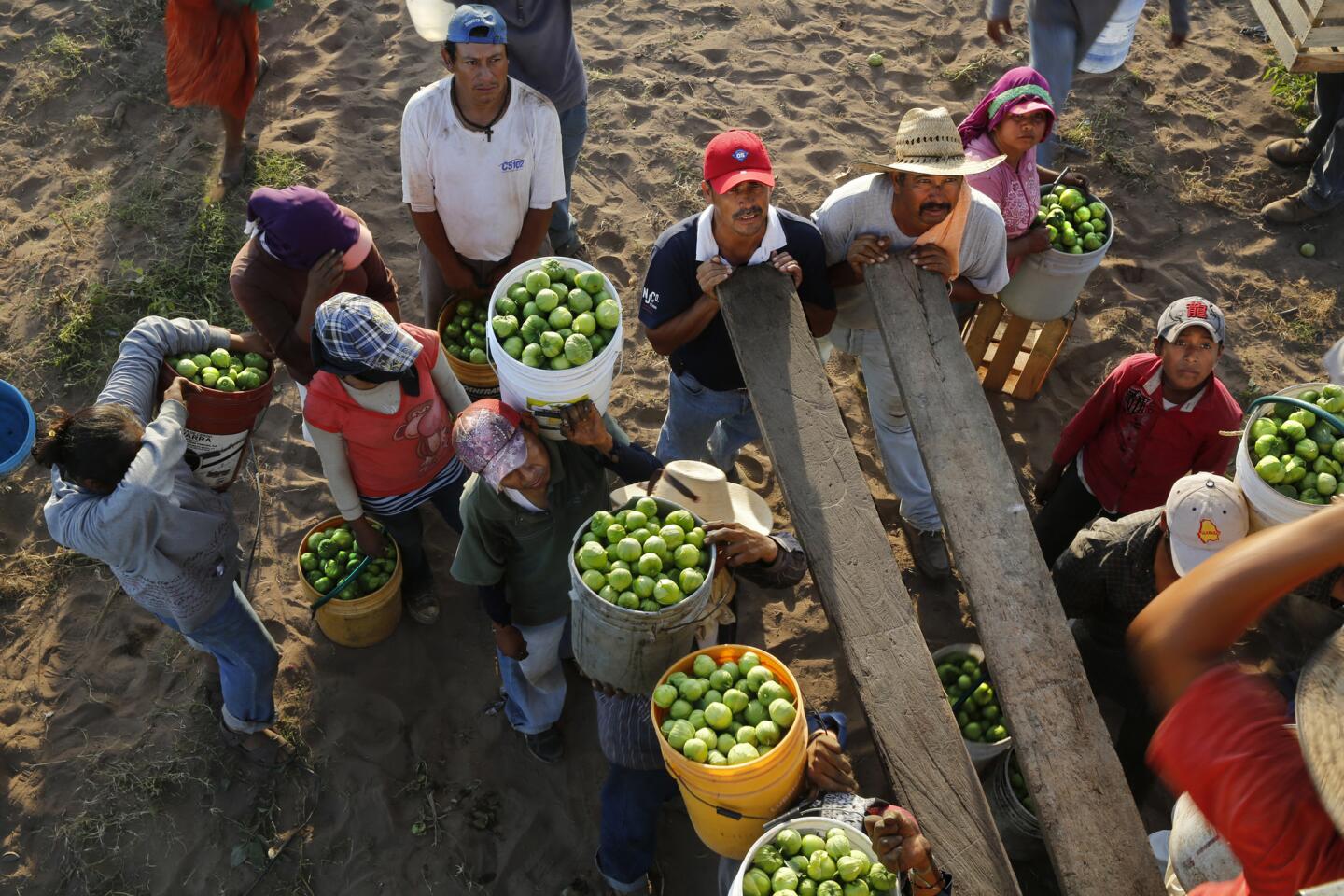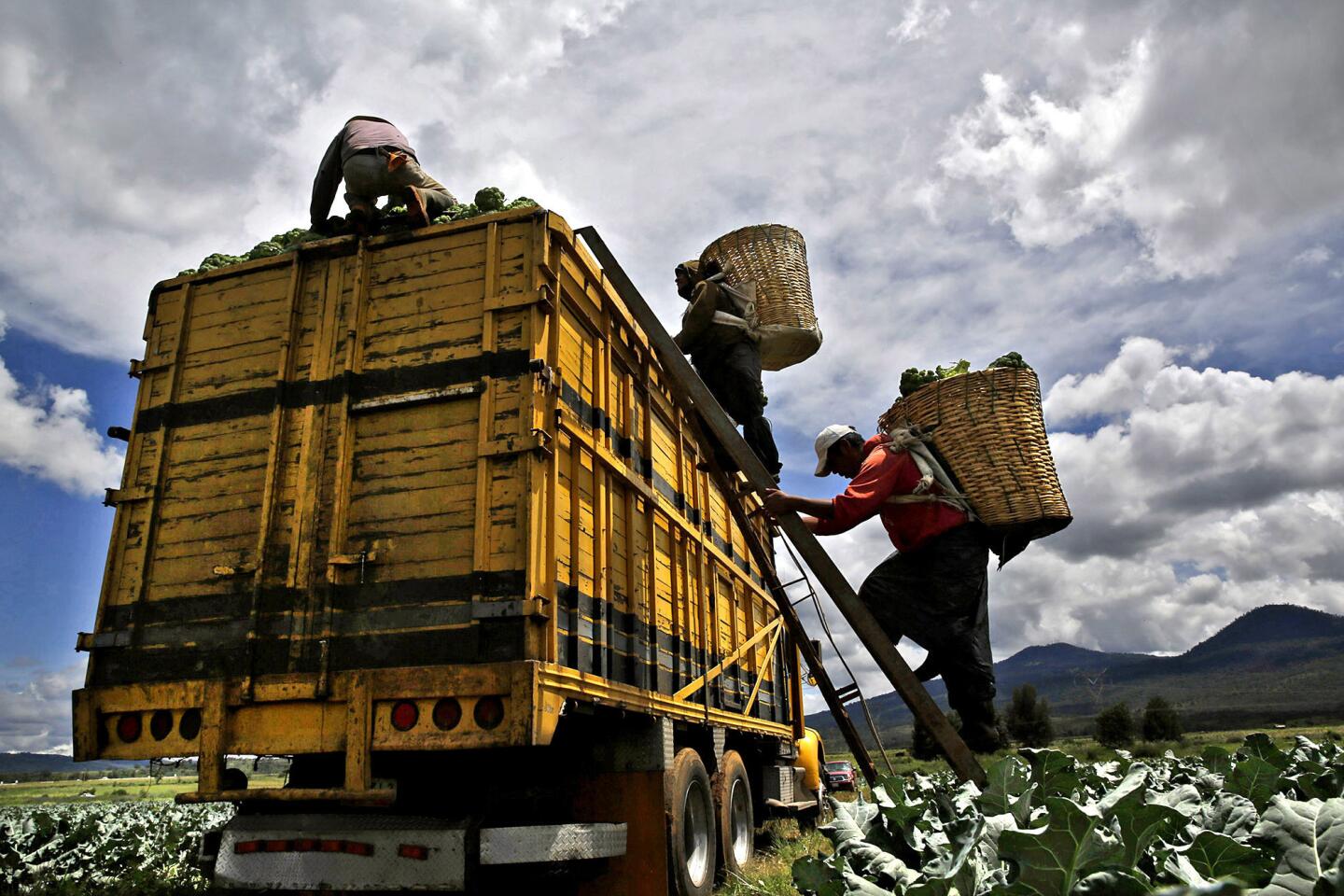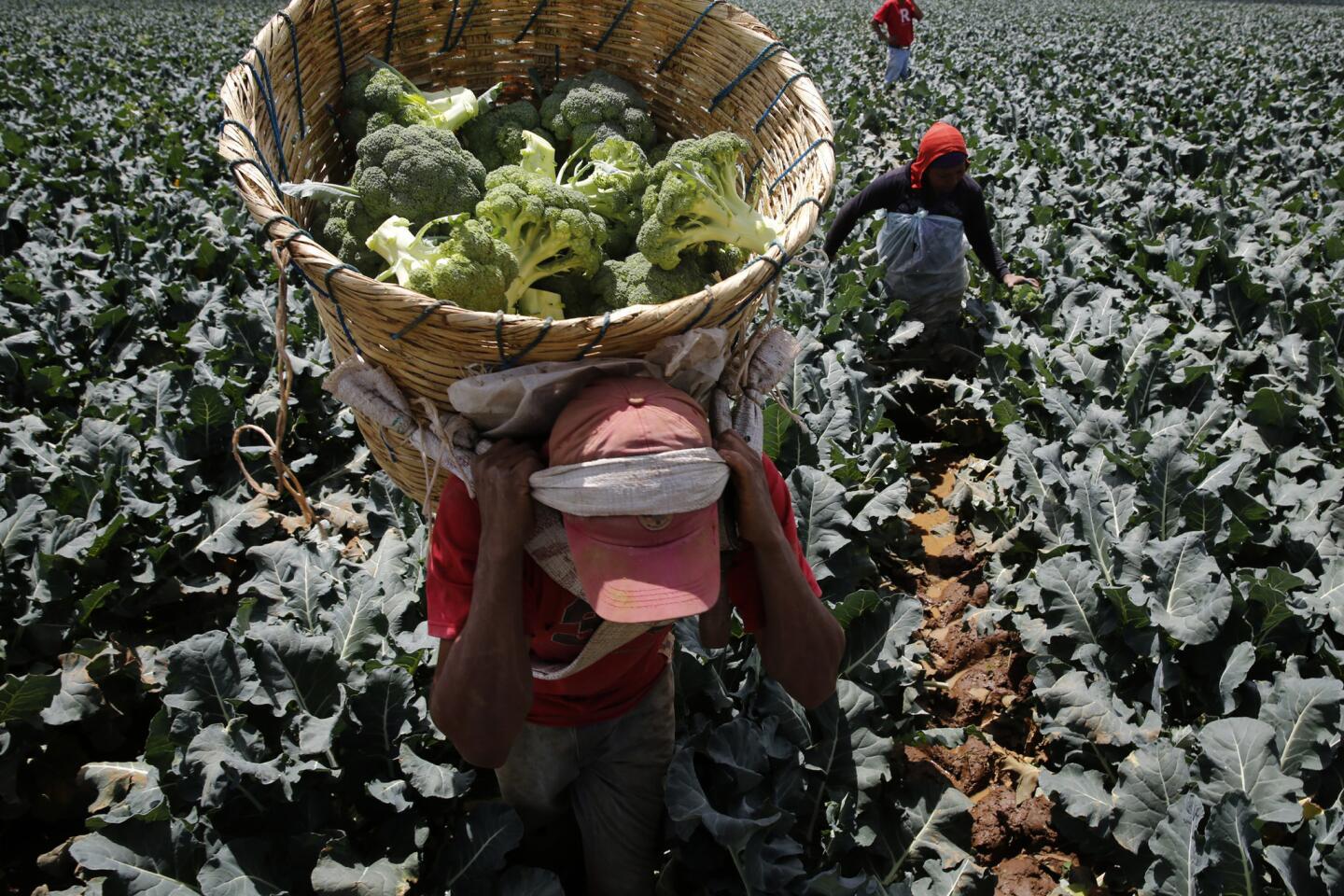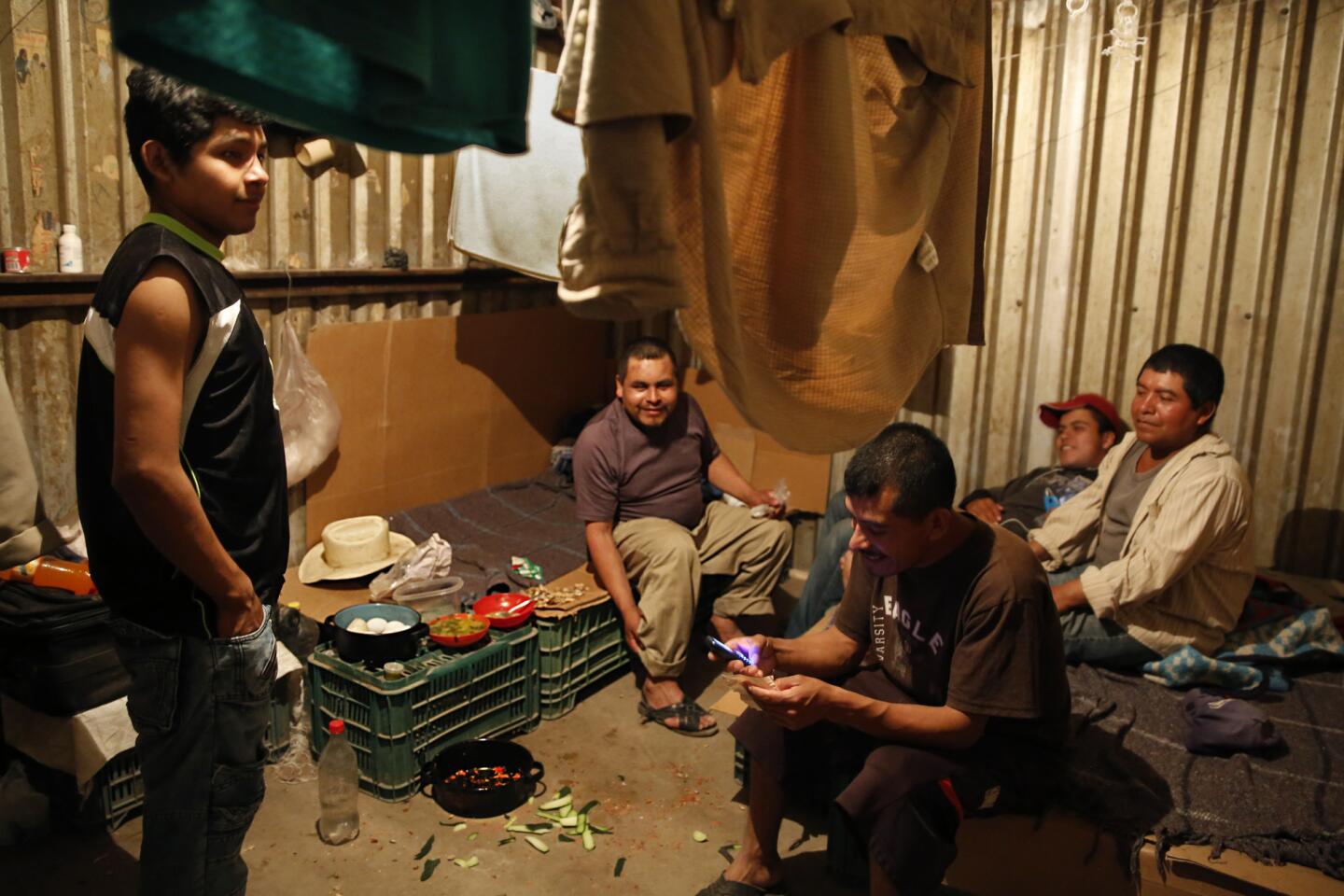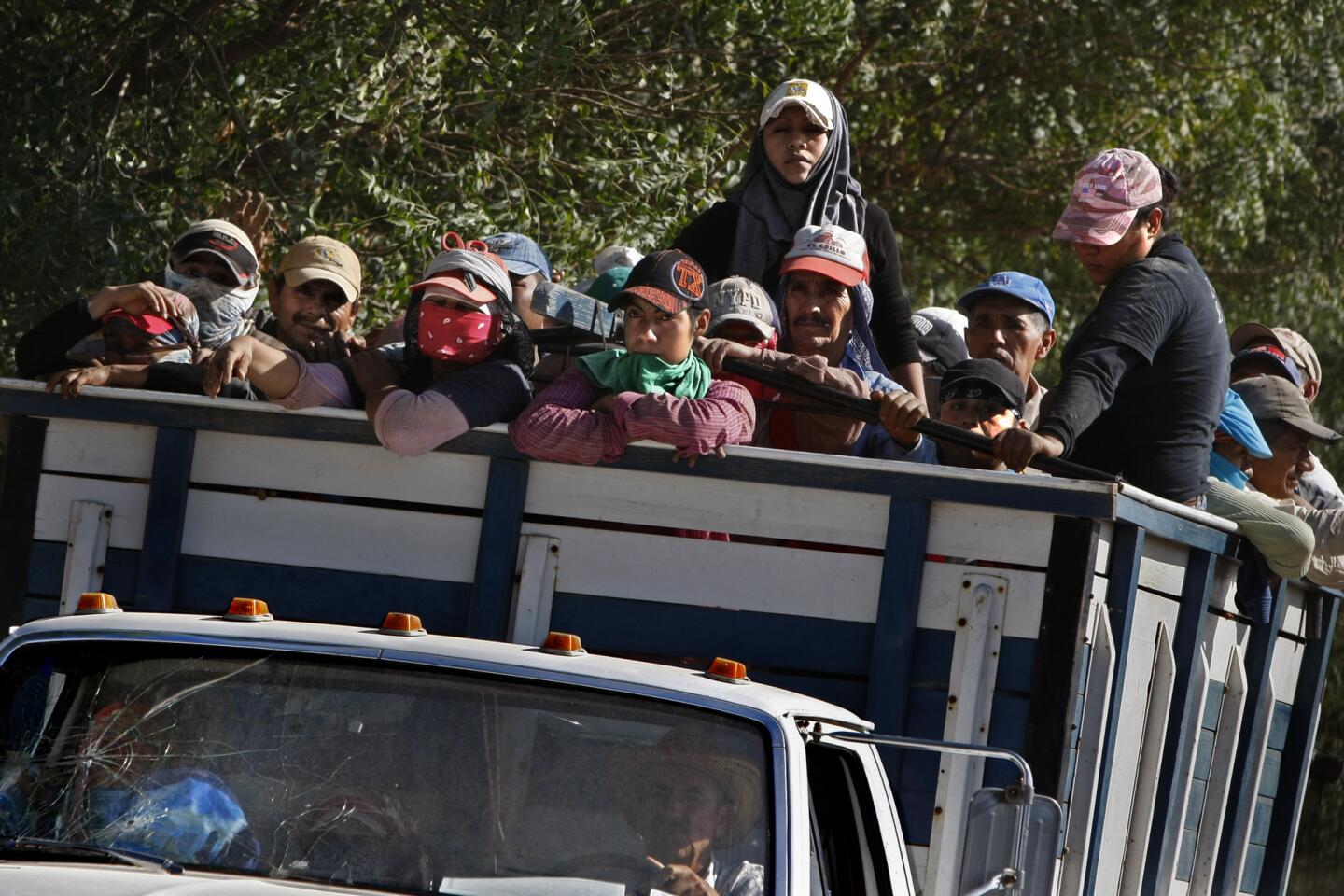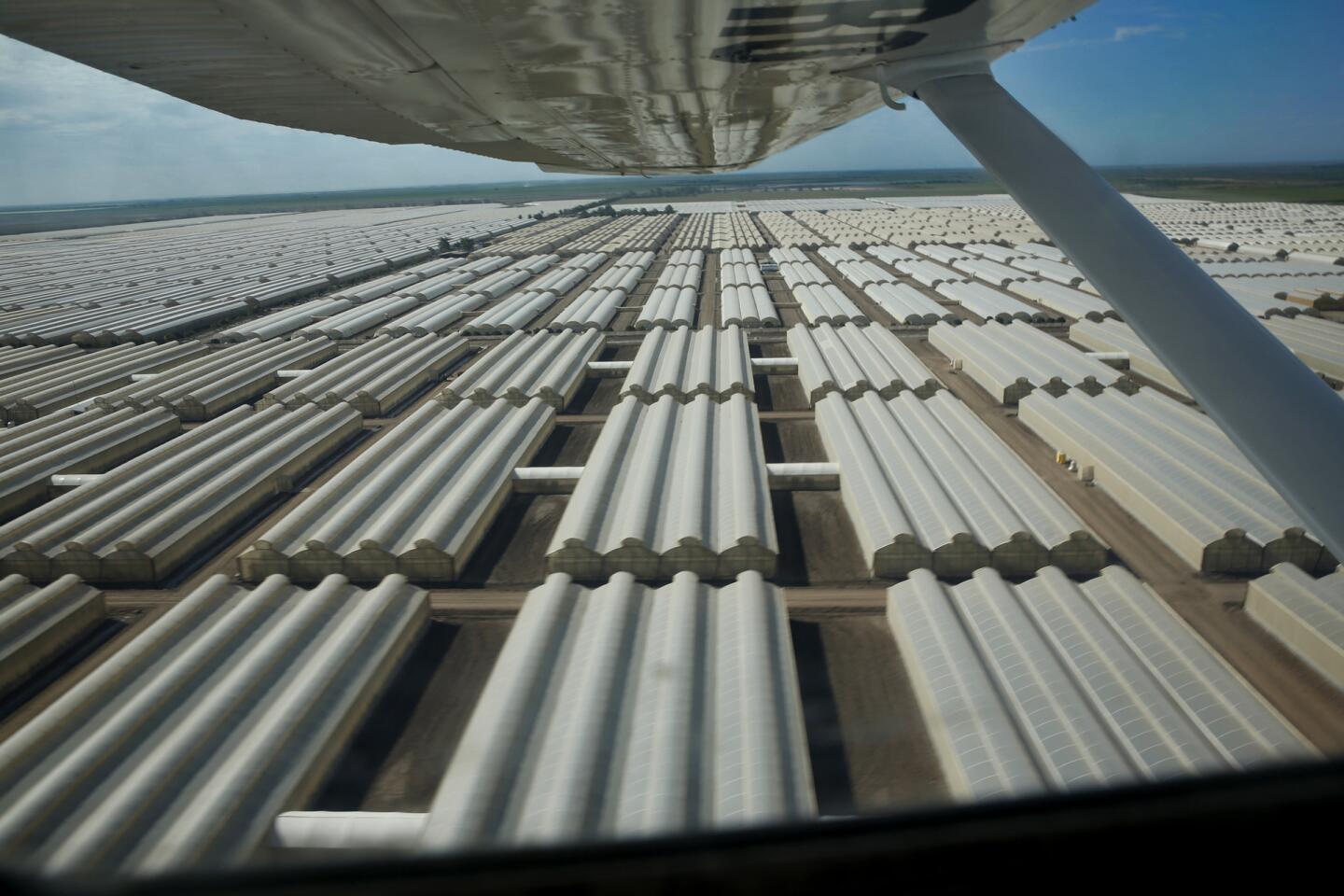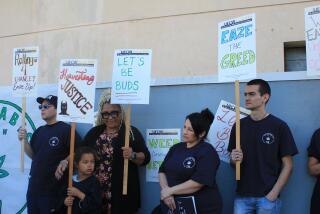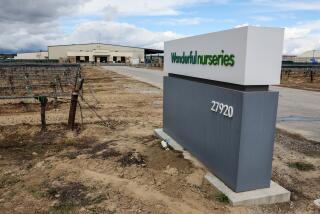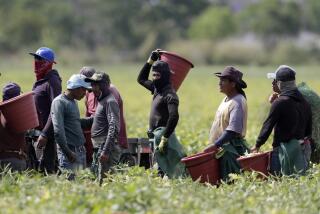Tensions high amid crippling protests by farmworkers in Baja
Farmworkers in Baja California vowed to continue a strike that threatens the region’s harvest after negotiations broke down late Wednesday and authorities refused to release dozens of laborers arrested during protests that degenerated into rock-throwing and looting.
The Mexican government has sent hundreds of soldiers, state and municipal police to secure the region about 200 miles south of San Diego after thousands of protesters shut down the main highway linking the coastal agricultural fields with export markets in California.
The strike has crippled the region. Schools, stores and gasoline stations were shuttered on Wednesday. Crops went unpicked inside the enormous greenhouses that line the highway. And dozens of families of people arrested camped outside the state government building in San Quintin.
Laborers are demanding higher salaries and government benefits like social security that they say agribusinesses have long denied them. Laborers make about $8 to $12 per day on average picking strawberries, tomatoes and cucumbers.
Union leaders, in a meeting with government and industry officials Wednesday night, added to their demands, asking authorities to release the arrested laborers from jail and to lift arrest warrants against several union leaders.
About 170 people were arrested and several dozen remained in custody Wednesday night, according to state officials.
But the session ended when the representative for the agribusinesses, Alberto Munoz of the Consejo Agricola de Baja California, failed to return to the meeting held in a salon of a hotel that was packed with laborers and media.
Baja California government officials at the meeting thanked union leaders for lifting the roadblocks on the Transpeninsular Highway that prevented hundreds of produce trucks from getting through on Tuesday.
But union leaders said the strike would continue and warned that the situation could turn ugly again if negotiations don’t progress. Union leaders said their peaceful protests have been infiltrated by radical groups that they don’t control. Another meeting with Munoz was scheduled for 11 a.m. Thursday.
“If he doesn’t show up we can’t be held responsible for what happens,” said Fidel Sanchez, a spokesman for the Alliance of National, State and Municipal Organizations for Social Justice, a coalition of indigenous groups that represents laborers.
Protests were peaceful Wednesday night. In Colonet, north of San Quintin, hundreds of laborers lined the highway lighted by burning rubber tires. They held signs and chanted at passing motorists. “We just want decent wages,” they yelled.
About 30,000 laborers work in the agricultural fields in the coastal region of San Quintin. It is one of Mexico’s leading agricultural export regions, shipping tons of strawberries, tomatoes and cucumbers annually to the U.S.
Widespread labor abuses at Mexican export farms were documented in “Product of Mexico,” a series published by The Times in December. Mexico’s secretary of agriculture in February announced the formation of an alliance of produce industry groups to address social responsibility issues at the country’s export farms.
Twitter: @ricardin24
More to Read
Start your day right
Sign up for Essential California for news, features and recommendations from the L.A. Times and beyond in your inbox six days a week.
You may occasionally receive promotional content from the Los Angeles Times.
